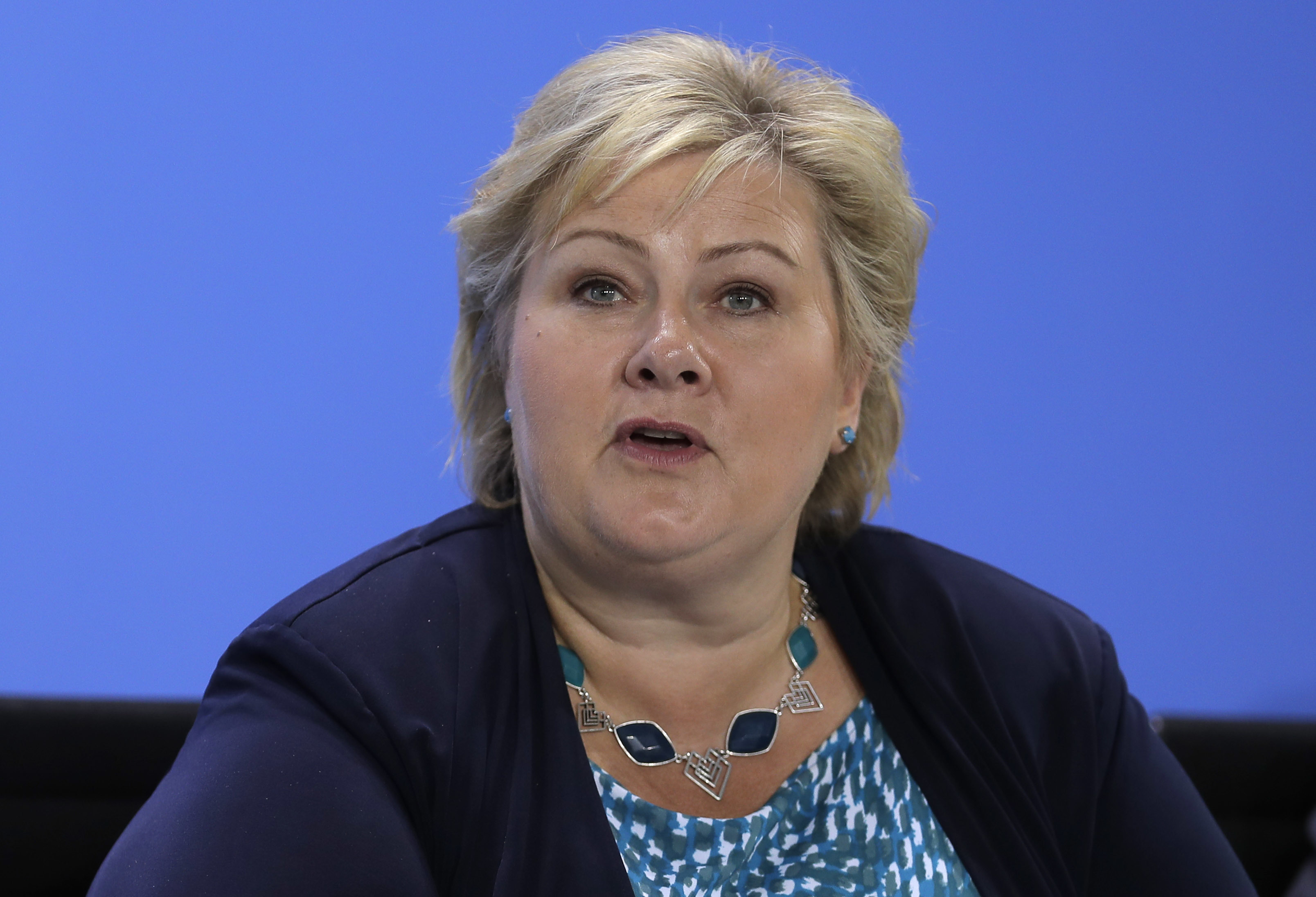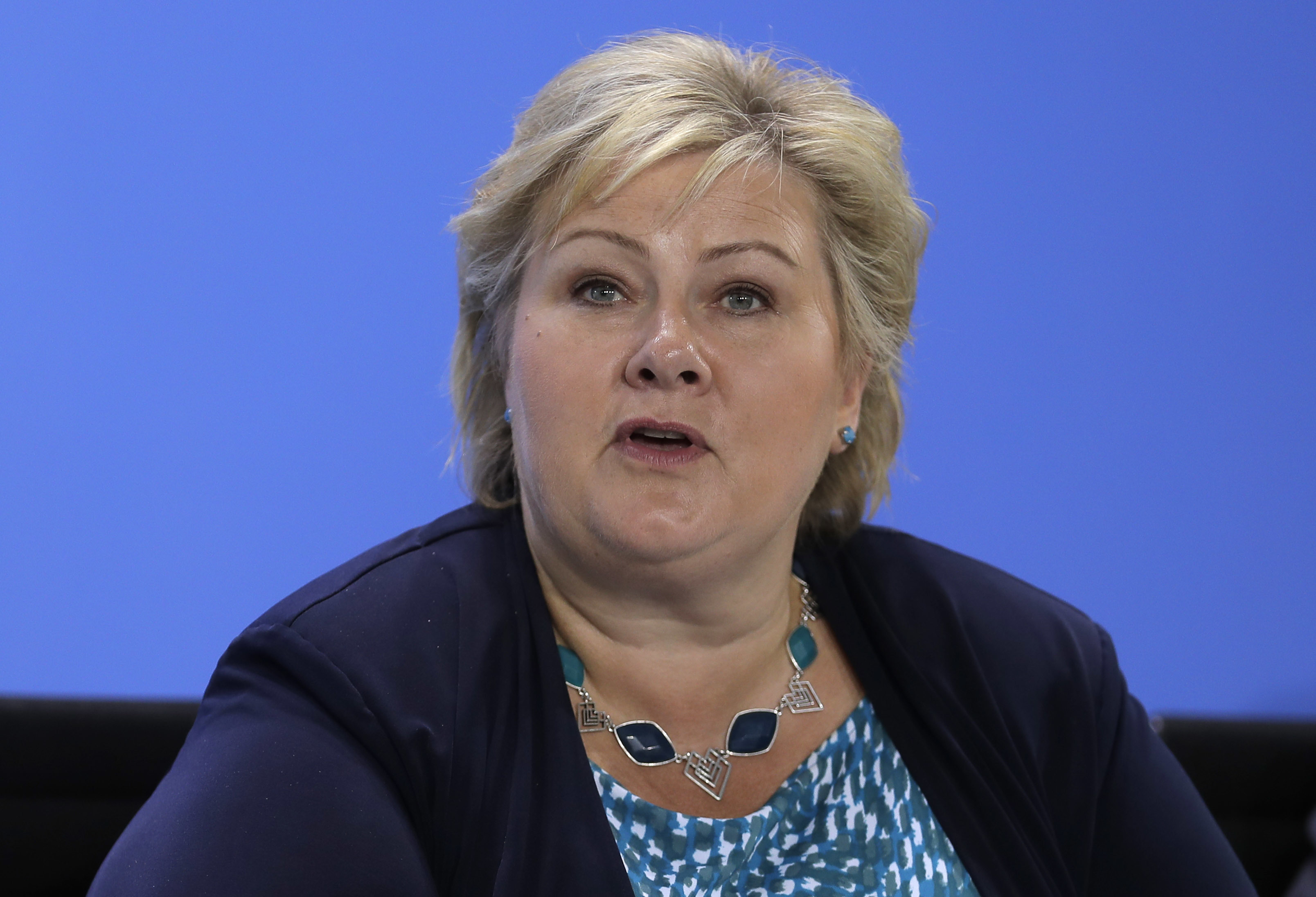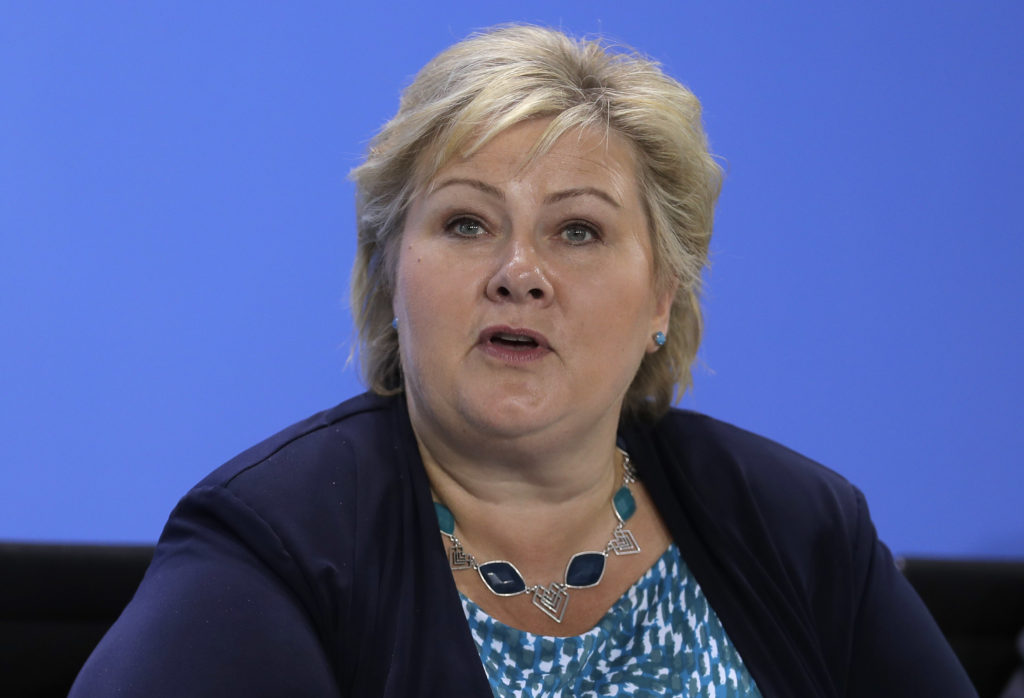Norway rejects socialism, re-elects conservative prime minister
{$excerpt:n}


(AP Photo/Markus Schreiber)
Norway re-elected conservative Prime Minister Erna Solberg on Monday, guaranteeing a right-of-center government in a country that former United States presidential candidate Bernie Sanders often touted as a model of democratic socialism.
Ms. Solberg and her coalition partners, including the conservative Progress Party – which only four years ago was considered on the right-wing fringe for supporting lower taxes and stricter immigration – gained 89 seats in Norway’s unicameral, 169-seat Parliament. Her main opponent, Jonas Gahr Store, of the left-leaning Labor Party, which won 80 seats, called the results “a huge disappointment.”
Sanders, once argued in a 2015 presidential primary debate in Las Vegas, “I think we should look to countries like Denmark, and Sweden, and Norway, and learn from what they have accomplished for their working people.”
Millennials supported Sanders by wide margins and polls found it wasn’t because of his polished speaking skills, but because his message resonated with young voters.
A YouGov poll in 2016 found voters under-30 favored socialism over capitalism by more than 10 percentage points. Republican pollster Frank Luntz found similar results, with 58 percent of young Americans viewing socialism favorably, while only 34 percent looked favorably on capitalism.
Sanders is not alone on the American Left in arguing that Americans would fare much better if the U.S. would adopt Nordic-style democratic socialism.
Statistics show that Nordic countries, while having much higher tax rates and larger social safety nets than the U.S., enjoy a greater level of general happiness, higher life expectancy, lower infant mortality rates, and a much broader middle class. To many, it seems these countries prove that democratic socialism can lower economic inequality and provide for all its citizens without sacrificing high living standards.
However, many accuse Sanders and other Americans on the Left of not truly understanding the Nordic model.
As Swedish scholar Nima Sanandaji, president of the European Centre for Entrepreneurship and Policy Reform, points out in his book, “Scandinavian Unexceptionalism,” Scandinavian prosperity predated those countries’ adoption of welfare states. Beginning in the 1870s, Sweden developed one of the freest markets on earth, which created the highest economic growth rate in the industrialized world for more than 60 years.
As Swedish scholar, Nima Sanandaji, president of the European Centre for Entrepreneurship and Policy Reform, points out in his book, Scandinavian Unexceptionalism, Scandinavian prosperity predated those countries’ adoption of welfare states. Beginning in the 1870s, Sweden developed one of the freest markets on Earth, which created the highest economic growth rate in the industrialized world for more than 60 years.
Another little-known aspect of Nordic economies that Sanandaji notes is that they currently provide a freer market on issues like regulation, trade, and barriers to investment. This, in turn, mitigates many of the socialist deficiencies in their economies. The Index of Economic Freedom, which takes more than government-provided child care into consideration, ranks Denmark only slightly below U.S.
Nordic governments tax about half of its citizens’ wealth, but these are largely flat rates that affect everyone harshly. In other words, the anti-wealth populism of Sanders and his supporters who rail against income inequality would not fit with the Nordic model. Furthermore, these countries don’t redistribute wealth from rich to poor like much of the American system, which originated with President Lyndon Johnson’s Great Society. Instead, greater workforce participation often means greater government benefits.
Another point where Nordic countries break with Sanders’ vision for the U.S. is the minimum wage. Corey Iacono, 2016 Thorpe Fellow with the Foundation for Economic Education, writes, “You will find no such government-imposed floors on labor in Sweden, Norway, or Denmark. Instead, minimum wages are decided by collective-bargaining agreements between unions and employers; they typically vary on an occupational or industrial basis. Union-imposed wages…do their own damage to an economy, but such a decentralized system is still arguably a much better way of doing things than having the central government set a one-size fits all wage policy that covers every occupation nationwide.”
Sanders, on the other hand, consistently supported raising the minimum wage to $15 an hour even though economists have shown that such a policy would harm low-wage workers.
The Nordic economies also benefit from much lower levels of government corruption and freer trade than the U.S. – traits that have nothing to do with tax rates and safety nets.
Solberg’s victory marks the first time in 30 years that a member of the Conservative Party has won consecutive terms as Norway’s prime minister.
As Sanandaji observes, many of these countries have been moving away from socialist policies over the past couple of decades. Of the five Nordic countries, only Sweden is headed by social democrats, and even there, they no longer command widespread support.
At a rally of supporters after the election, Solberg struck a tone of cautious optimism, but added, “it looks as though we will have a non-socialist majority.”
After the Soviet bloc butchered socialism’s reputation, the Nordic nations seemed to point the way for social democrats. But, if Scandinavia turns politically rightward, where will Sanders-style Progressives find their success stories?
Siv Jensen, leader of the Progress Party was moved to tears remembering how political opponents predicted being able to bully her party in Parliament.
“Absolutely all those predictions are put to shame,” she said.
The post Norway rejects socialism, re-elects conservative prime minister appeared first on Red Alert Politics.
Source: Red Alert Politics



